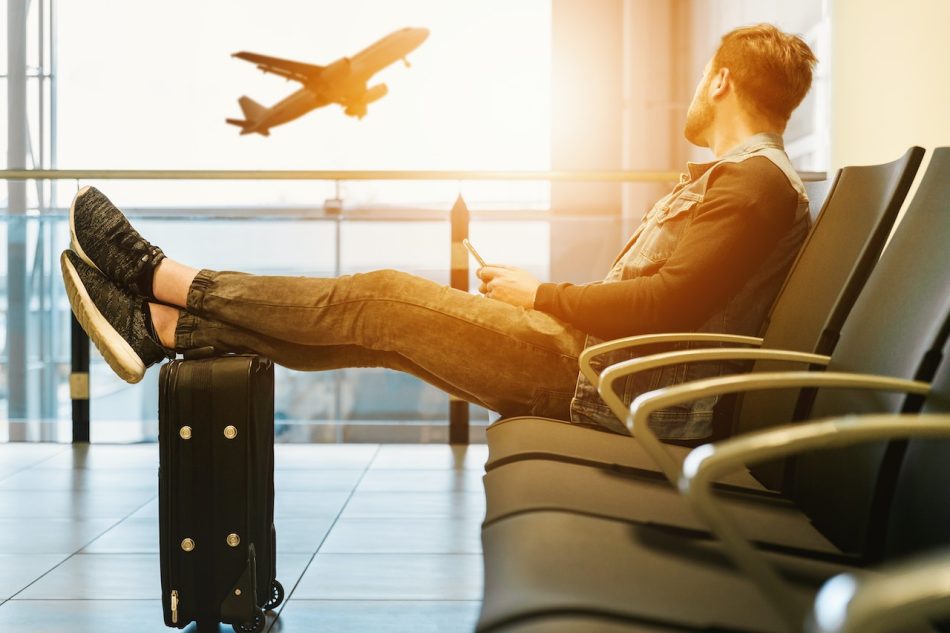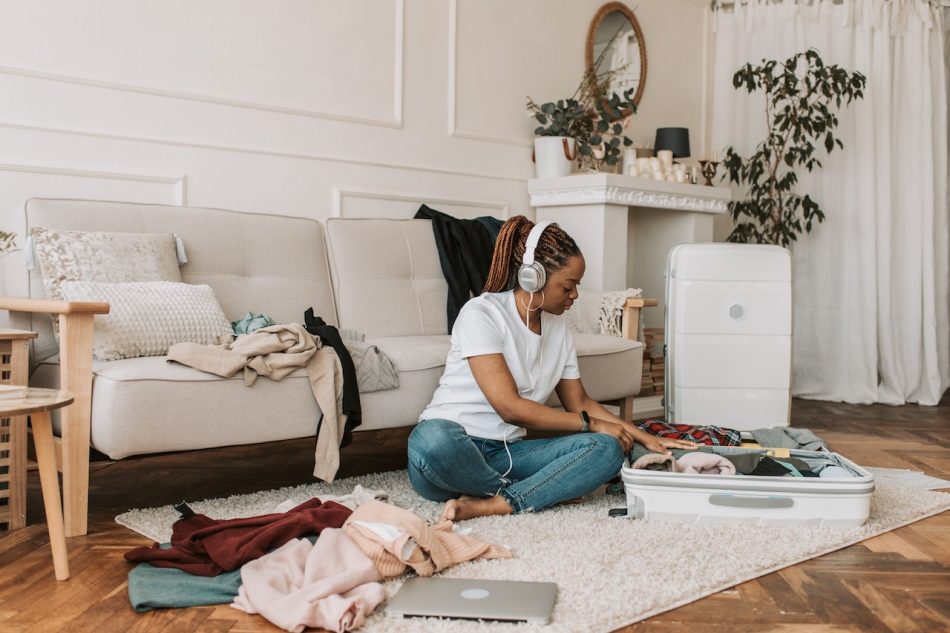Caribbean culture shock: What to expect when moving to paradise

A man sitting at the airport.
Moving to paradise sounds like a dream come true. Pristine beaches, swaying palm trees, and a laid-back lifestyle that promises an escape from the daily grind. With its picture-perfect postcard scenery, the Caribbean has long been a magnet for those seeking a new beginning in a tropical haven. However, beneath the surface of this idyllic paradise lies a unique challenge that many newcomers face: Caribbean culture shock.
Understanding Caribbean Culture Shock
Culture shock is like stepping into a new world where everything is different, and it can be disorienting and challenging to navigate. At its core, culture shock is a psychological and emotional response to the dissonance between what you’re used to in your home culture and the new norms, values, customs, and behaviors of the culture you’re now immersed in. It can manifest in various ways, including confusion, frustration, anxiety, homesickness, and even physical symptoms like fatigue or headaches. Culture shock typically unfolds in several stages. The first stage is the “honeymoon phase,” where everything seems fascinating. However, as time goes on, the “frustration stage” kicks in.
This is when the novelty wears off, and the differences become more apparent and challenging to handle. During this phase, people may struggle with language barriers, differences in daily routines, and cultural misunderstandings. Gradually, with time and effort, individuals enter the “adjustment stage.” They start adapting to the new culture, develop coping strategies, and better understand their surroundings. Eventually, many people reach the “acceptance stage,” where they embrace the new culture, appreciate its uniqueness, and feel a sense of belonging. Culture shock is a natural and expected part of the journey when you immerse yourself in a new culture. It’s essential to be patient with yourself and seek support from local resources and fellow expats during the challenging stages.
Researching the local culture can help you settle in more easily and quickly overcome the Caribbean culture shock.


A woman looking at her phone at a coffee shop.
Caribbean Culture Overview
The Caribbean is a vibrant tapestry of cultures, a radiant mosaic that captivates the senses and warms the heart. Here, diversity reigns supreme, offering a rich and colorful panorama of traditions, music, and flavors. The Afro-Caribbean influence pulses through reggae, calypso, and dancehall rhythms, infusing every step with infectious joy. Step into the world of Indo-Caribbean communities, where aromatic spices and culinary prowess create mouthwatering dishes that tell stories of heritage. The Anglo-Caribbean islands bring forth their unique British colonial charm, mixing with the sun-soaked shores to create an inviting and cosmopolitan atmosphere.
Meanwhile, the Hispanic-Caribbean regions invite you to savor the lively beats of salsa and merengue while indulging in delectable dishes like mofongo. Caribbean culture is a tapestry of celebrations, a constant fiesta where each island boasts festivals, parades, and traditions. From Trinidad and Tobago’s Carnival, a whirlwind of vibrant costumes and music, to the solemn beauty of Semana Santa in the Dominican Republic, there’s always a reason to celebrate. In the Caribbean, culture is not something to observe from a distance. Rather, it’s a treasure to be embraced, a melody to dance to, and a flavor to savor.
Language and Communication
These are essential aspects of adapting to a new culture. Language barriers can be a significant challenge, but there are solutions. First, learning local dialects is a key step in breaking down those barriers. Enrolling in language schools or accessing language resources can provide the necessary tools to communicate effectively with locals. However, it’s not just about words; non-verbal communication plays a crucial role, too.
Understanding gestures and body language specific to the culture can help you navigate conversations and social interactions. Learning when to nod, smile, or maintain eye contact can convey respect and understanding. Moreover, grasping cultural cues, like when it’s appropriate to shake hands or offer a friendly embrace, is vital for building relationships and avoiding misunderstandings. In the Caribbean, the warmth of your non-verbal communication can often speak louder than words, so paying attention to these nuances can go a long way in fostering positive connections with the local community.


A group of young adults sitting at the beach, getting to know each other and overcoming Caribbean culture shock.
Initial Arrival and Acclimatization
First impressions leave a lasting mark. The scenic beauty and natural wonders of the region often leave newcomers awestruck. From pristine beaches to lush tropical landscapes, the Caribbean’s breathtaking environment is an enchanting welcome. Equally impactful are the welcoming locals. Caribbean people are known for their friendliness and hospitality, making it easy to feel at home. Their warm smiles and open arms can help newcomers feel like part of the community from day one. The expat community plays a significant role during this transition. Expats can provide essential support and connections, helping newcomers navigate unfamiliar terrain. They offer insights into local life and can provide comfort during the adjustment period. Joining expat groups or organizations can greatly expand your social circle and build a sense of belonging.
Adapting to the Caribbean pace is another crucial aspect. The concept of “island time” often contrasts with the hustle and bustle of other places. Understanding and appreciating this slower, more relaxed rhythm is key to fitting in. Additionally, grasping the nuances of the Caribbean work culture, which may prioritize relationships over strict schedules, is important for professional life. Balancing relaxation and productivity is a challenge but a vital one. It’s easy to get swept away by the allure of leisure in such a paradise, but maintaining a sense of purpose and productivity is essential. Striking this balance ensures that you make the most of your Caribbean experience.
Overcoming Culture Shock
Initially, there’s the honeymoon phase, where everything feels exciting and new. But soon, reality sets in, and frustration or confusion may arise. Additionally, settling into your new home can make the entire process even more frustrating. Moving on its own can be stressful, but promoversmiami.com says that the stress of moving can be managed when you plan the process ahead of time. Understanding that these frustrations are a natural part of the process can help you navigate it with patience. If culture shock becomes overwhelming, seeking professional help is a sensible step. Psychologists or counselors can provide valuable guidance and coping strategies.
Don’t hesitate to reach out if needed; it’s a sign of strength to seek assistance when adjusting to the Caribbean culture shock. To ensure long-term adaptation, two key strategies come into play. Firstly, embrace change and personal growth. It’s essential to remain open to new experiences and perspectives. This flexibility enables you to integrate into the new culture and broaden your horizons. Secondly, find a balance between your old and new cultures. While adapting, maintain a connection with your roots, traditions, and values. This balance allows you to retain your identity while appreciating and respecting the host culture.


A woman packing her suitcase for moving.
Conclusion
In the captivating journey through Caribbean culture shock, we’ve explored the stages of adaptation, from the initial enchantment to the profound acceptance of a new way of life. While culture shock presents its share of challenges, it ultimately leads to personal growth.
END
ALL IMAGES: pexels






2 COMMENTS